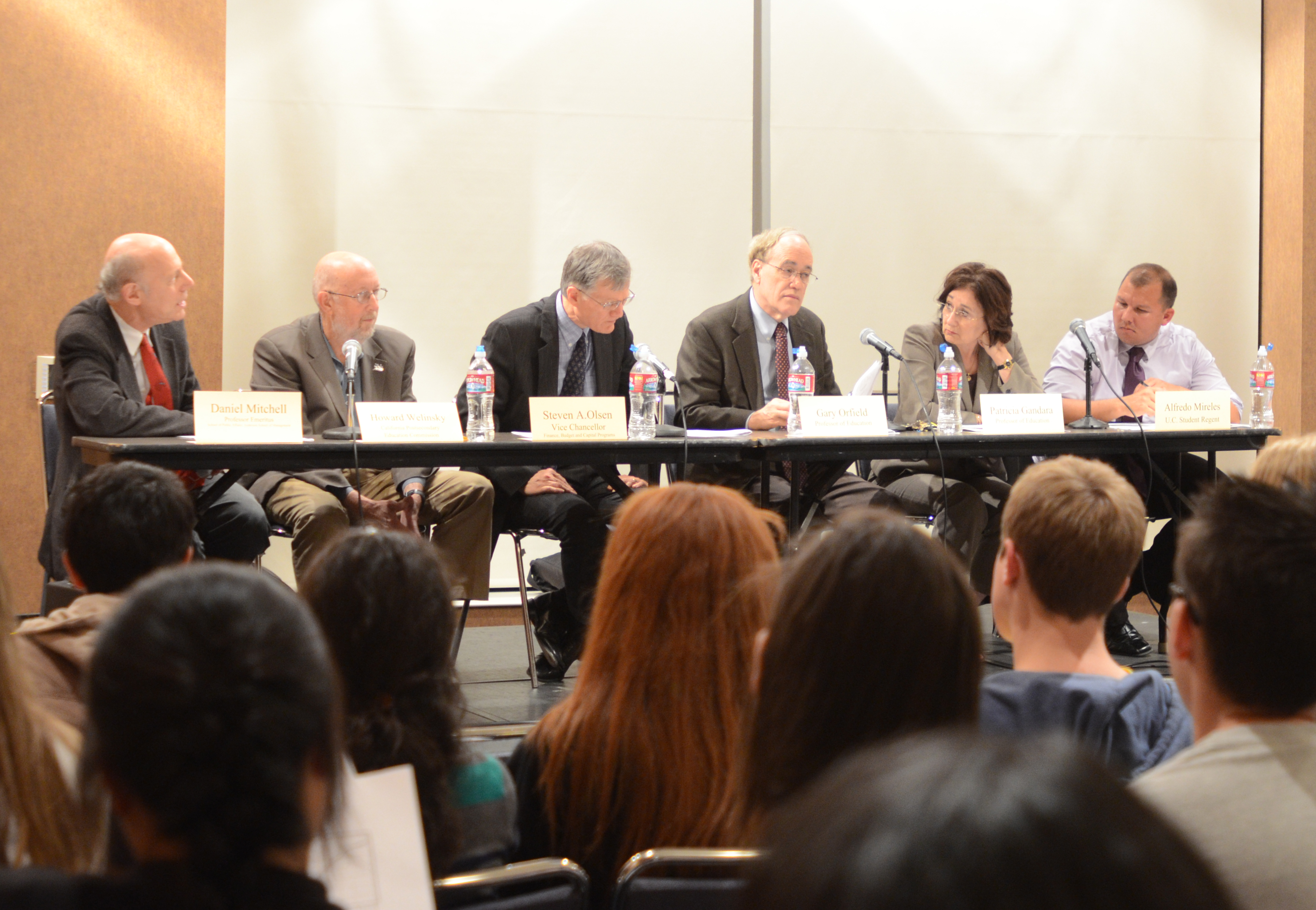Panel of UC professors and leaders discuss the relevance of the university's Master Plan

A panel comprised of professors and UC leaders met Wednesday to discuss the University of California Master Plan.
By Brendan Jackson
March 15, 2012 12:56 a.m.
Correction: The original version of this article contained an error. The panel was sponsored by the Undergraduate Students Association Office of the President, USAC’s External Vice President’s office, Bruin Democrats and Bruin Republicans.
With an influx of baby boomer students entering college in the 1960s, the state of California adopted the University of California Master Plan to create a road map for the future of the higher education institution.
That plan, now 52 years old, is still intact today. But its relevance came into question Wednesday night during a panel discussion consisting of UCLA administrators, faculty and student leaders.
The panel, sponsored by the Undergraduate Students Association Office of the President, USAC’s External Vice President’s office, Bruin Democrats and Bruin Republicans, sought to create dialogue among university stakeholders and to educate students about decisions concerning future UC funding, said Emily Resnick, president of USAC.
Panelists included Professor Emeritus Daniel Mitchell and professors Patricia Gandara, Susanne Lohmann and Gary Orfield, as well as Steven Olsen, the UCLA vice chancellor of finance, budget and capital programs. UC Student Regent Alfredo Mireles Jr. and Howard Welinsky, chairman of the issue advocacy committee for California Coalition for Public Higher Education, also participated.
When the plan was first adopted more than 50 years ago, policymakers of the time differentiated between the three higher education institutions in the state, Mireles said.
The UC was to focus on professional development and doctoral research, while the CSU was to specialize in liberal arts and master’s degree programs. The California Community Colleges system was to specialize in vocational training and to promote a path to transferring to either the UC or CSU, according to the Master Plan.
Over the past half-century, California’s funding responsibilities have drastically changed. Since the adoption of the Master Plan, the state is now responsible for funding K-12 education and Medicaid, which have “eaten” the budget for higher education, Mitchell said.
“The policymakers who wrote the Master Plan 52 years ago didn’t intend for it to be a rigid document,” Mireles said. “It’s time we adapt the plan to fit the needs of students and to address the current issues our state is facing.”
In her opening remarks, Lohmann, a UCLA professor of political science, said the Master Plan was extremely visionary for its time, but does not fit the current needs of California.
Discussion later transformed into a discussion of the budget crisis affecting the university. Welinsky, a UCLA alumnus, said Californians are not actively demanding the legislature to refund higher education.
Orfield, an education professor who specializes on inequity, said he felt concerns were currently not addressed to the right policymakers. Most funding problems originate in the state legislature, not the UC Board of Regents or the chancellors, he said.
“Students are the biggest constituency that can create change,” he said.


